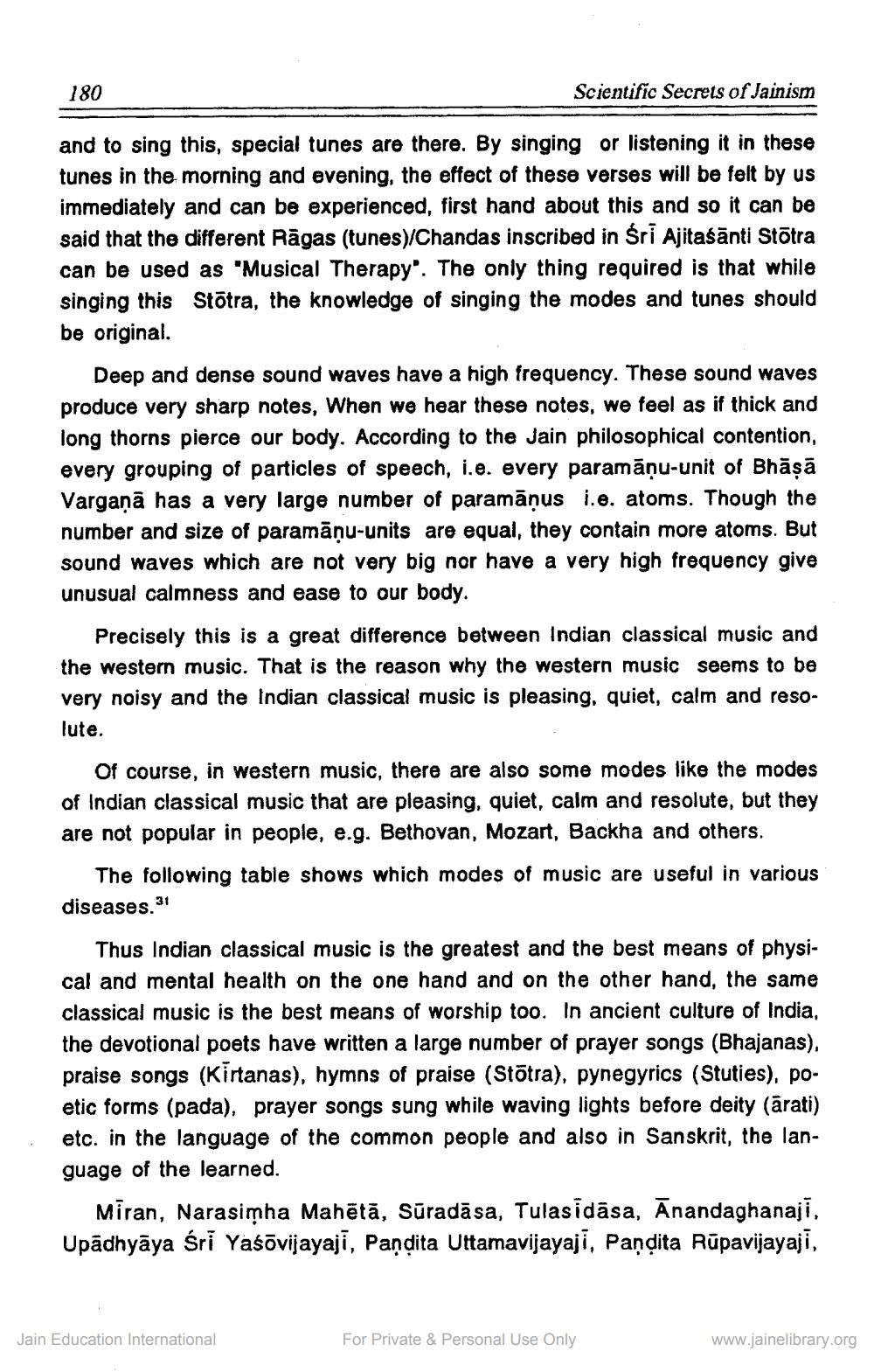________________
180
Scientific Secrets of Jainism
and to sing this, special tunes are there. By singing or listening it in these tunes in the morning and evening, the effect of these verses will be felt by us immediately and can be experienced, first hand about this and so it can be said that the different Rāgas (tunes)/Chandas inscribed in Sri Ajitaśānti Stātra can be used as "Musical Therapy". The only thing required is that while singing this Stõtra, the knowledge of singing the modes and tunes should be original.
Deep and dense sound waves have a high frequency. These sound waves produce very sharp notes, When we hear these notes, we feel as if thick and long thorns pierce our body. According to the Jain philosophical contention, every grouping of particles of speech, i.e. every paramāņu-unit of Bhāṣā Vargaņā has a very large number of paramānus i.e. atoms. Though the number and size of paramāņu-units are equal, they contain more atoms. But sound waves which are not very big nor have a very high frequency give unusual calmness and ease to our body.
Precisely this is a great difference between Indian classical music and the western music. That is the reason why the western music seems to be very noisy and the Indian classical music is pleasing, quiet, calm and resolute.
Of course, in western music, there are also some modes like the modes of Indian classical music that are pleasing, quiet, calm and resolute, but they are not popular in people, e.g. Bethovan, Mozart, Backha and others.
The following table shows which modes of music are useful in various diseases. 31
Thus Indian classical music is the greatest and the best means of physical and mental health on the one hand and on the other hand, the same classical music is the best means of worship too. In ancient culture of India, the devotional poets have written a large number of prayer songs (Bhajanas). praise songs (Kirtanas), hymns of praise (Stotra), pynegyrics (Stuties), poetic forms (pada), prayer songs sung while waving lights before deity (ārati) etc. in the language of the common people and also in Sanskrit, the language of the learned.
Miran, Narasimha Mahētā, Sūradāsa, Tulasidāsa, Ānandaghanaji, Upādhyāya sri Yaśāvijayajī, Pandita Uttamavijayaji, Pandita Rūpavijayaji,
Jain Education International
For Private & Personal Use Only
www.jainelibrary.org




